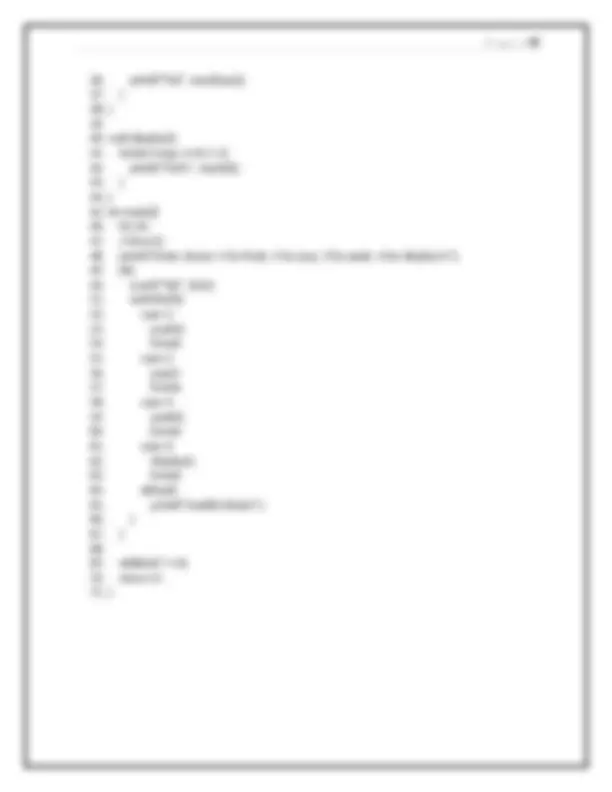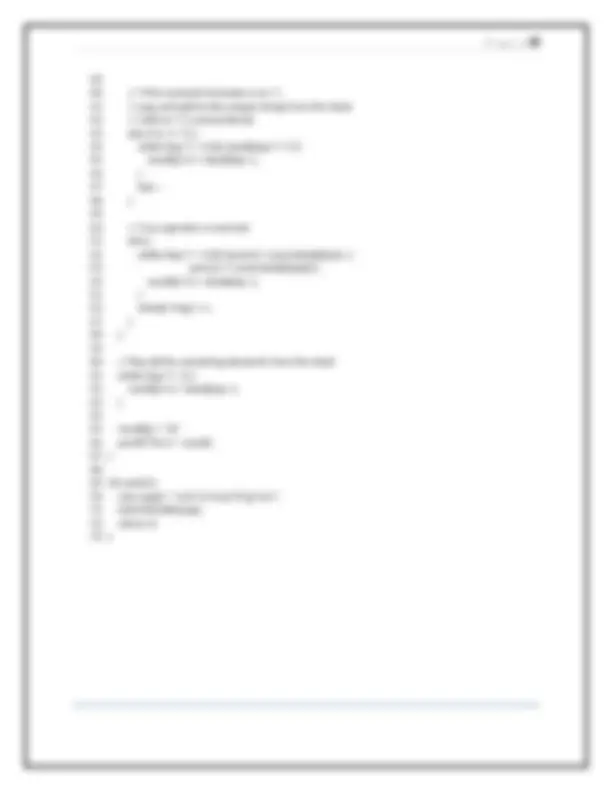



















































Study with the several resources on Docsity

Earn points by helping other students or get them with a premium plan


Prepare for your exams
Study with the several resources on Docsity

Earn points to download
Earn points by helping other students or get them with a premium plan
Community
Ask the community for help and clear up your study doubts
Discover the best universities in your country according to Docsity users
Free resources
Download our free guides on studying techniques, anxiety management strategies, and thesis advice from Docsity tutors
A comprehensive collection of c programming examples demonstrating the implementation of various data structures, including stacks, queues, linked lists, and arrays. It covers fundamental operations like insertion, deletion, traversal, and searching, along with sorting algorithms such as bubble sort, selection sort, insertion sort, and quick sort. Valuable for students learning data structures and algorithms in c, offering practical code examples and explanations.
Typology: Schemes and Mind Maps
1 / 57

This page cannot be seen from the preview
Don't miss anything!


















































#include <stdio.h>
#include <stdlib.h>
// Define a node structure
struct Node {
int data;
struct Node* next;
};
// Function to create a new node
struct Node* createNode(int data) {
struct Node* newNode = (struct Node*)malloc(sizeof(struct Node));
if (!newNode) {
printf("Memory allocation failed\n");
exit(1);
}
newNode->data = data;
newNode->next = NULL;
return newNode;
}
// Function to insert a node at the beginning of the linked list
void insertAtBeginning(struct Node** head, int data) {
struct Node* newNode = createNode(data);
newNode->next = *head;
*head = newNode;
}
// Function to print the linked list
void printList(struct Node* head) {
struct Node* temp = head;
while (temp != NULL) {
printf("%d -> ", temp->data);
temp = temp->next;
}
printf("NULL\n");
}
// Function to free the linked list memory
void freeList(struct Node* head) {
struct Node* temp;
while (head != NULL) {
temp = head;
head = head->next;
free(temp);
}
}
int main() {
struct Node* head = NULL;
// Insert elements into the linked list
insertAtBeginning(&head, 3);
insertAtBeginning(&head, 2);
insertAtBeginning(&head, 1);
// Print the linked list
printList(head);
// Free the linked list memory
freeList(head);
return 0;
}